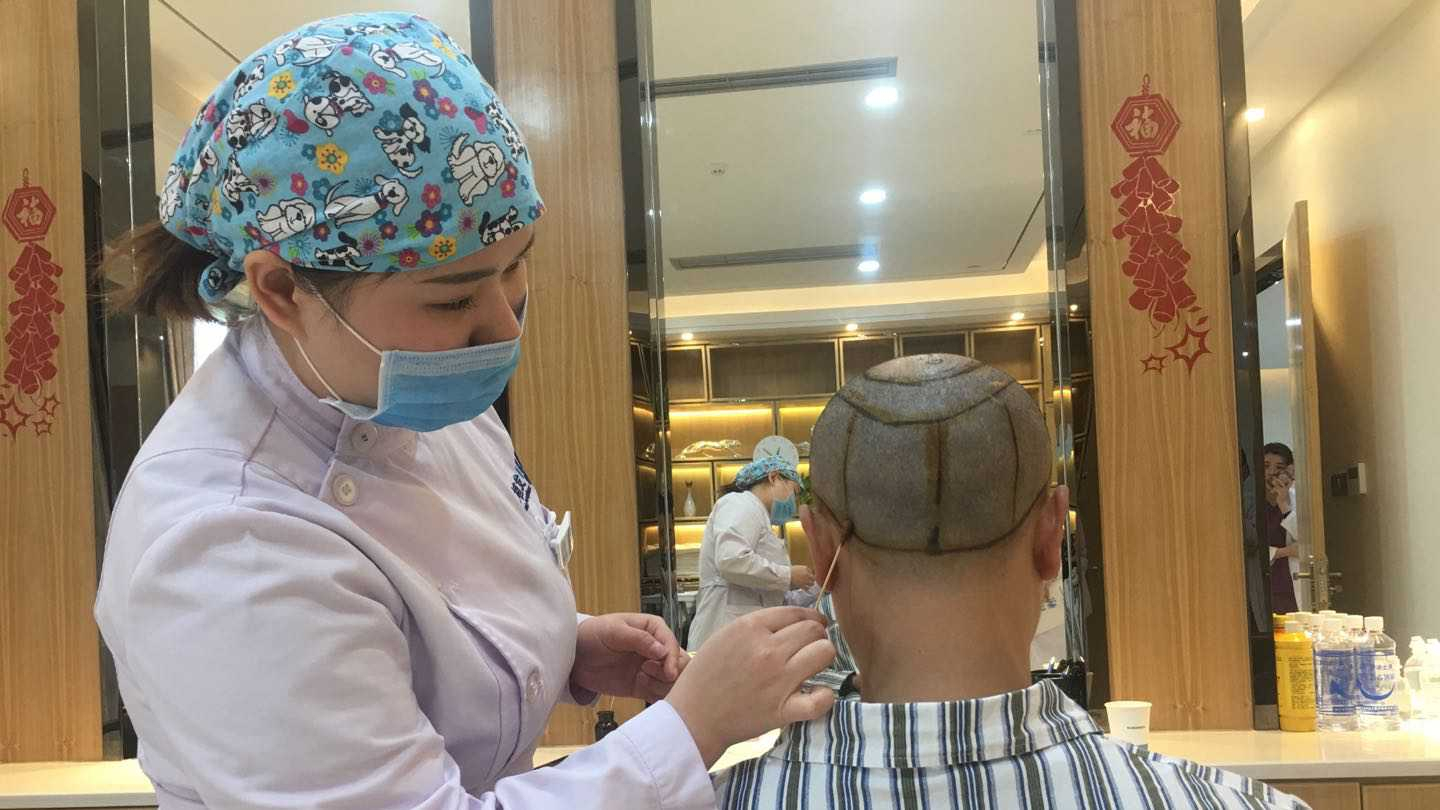
Money Stories
16:24, 21-Mar-2019
Growing hair loss trouble creates lucrative market in China
Updated
14:18, 22-Mar-2019
Yang Jinghao, Wu Siyi
03:01

China is seeing a soaring number of people troubled by hair loss, which has created lucrative business opportunities for related industries, such as hair transplant surgeries.
Today, “hair loss” has become a buzzword among young Chinese. A report released earlier by the China Association of Health Promotion and Education estimated that 250 million Chinese are plagued by hair loss, mainly those aged between 20 and 40.
To illustrate, in February, the West China Hospital in the southwestern Chinese city of Chengdu called online for 30 volunteers to test a hair growth product yet to hit the market. The notice soon went viral and attracted some 20,000 applicants within two days, and most of them were in their 20s and 30s.
Liu Xue, one of the volunteers, told CGTN that she is trying once more to fix her receding hairline from academic pressure.
“The problem really worries me very much. I don't dare wear my hair in a ponytail to show the hairline,” said the postgraduate student in Chengdu, adding that the shopping of anti-hair loss products has become a hot topic between her and her friends.

A young man shows his receding hairline. / VCG Photo
A young man shows his receding hairline. / VCG Photo
According to a report released in 2017 by Alihealth and Alidata – two subordinate platforms of China's e-commerce giant Alibaba, among the consumers of anti-hair loss and hair growth products, those born after 1990 take up 36.1 percent, followed by the so-called post-80s generation.
Li Li, a veteran dermatologist from the West China Hospital, said multiple factors are to blame for the “crisis.”
“An important aspect is that people's lifestyles have changed a lot. Despite improvements in living standards, people's workloads have also intensified. Meanwhile, changing recreational habits, like excessive smartphone use, have affected many people's sleep,” she told CGTN.
The increasing anxiety caused by hair loss has created a lucrative market. Besides all kinds of hair care products, China has seen a boom in hair transplant institutions in recent years as the demand continues to grow.
Mr. Zhang, a mechanic in his 30s who would not share his full name, received hair transplant surgery in March. He told CGTN that he had been troubled for about nine years and tried many products, including many imported ones, but all in vain.
“I finally decided to try the transplant option, as I think the technology is more advanced now and it's not that costly,” said Zhang.

A doctor from the Yonghe Hair Transplant conducts surgery. / CGTN Photo
A doctor from the Yonghe Hair Transplant conducts surgery. / CGTN Photo
The emerging industry has attracted the attention of investors. Several leading brands, including Yonghe and Lotus, have acquired large investments, which enabled them to open more chain stores across the country.
Last year, Yonghe carried out 38,000 surgeries nationwide, about 20 times that of five years ago. Zhang Yu, its president, said the sector is seeing new trends.
“Our clients are becoming younger on whole. Our busiest time is usually during the summer and winter holidays,” he said. “Meanwhile, more and more people now come in for artistic hair transplants. Treatment is not their only need. So the number of female clients is growing fast.”
In 2018, the market size for hair transplants reached 9.7 billion yuan, or 1.5 billion U.S. dollars, almost double the previous year, reported The Economic Observer newspaper.
Zhang Yu expects more fierce competition within the industry. As more players roll in, he said proper regulation of this fast-growing market is urgently needed.

SITEMAP
Copyright © 2018 CGTN. Beijing ICP prepared NO.16065310-3
Copyright © 2018 CGTN. Beijing ICP prepared NO.16065310-3